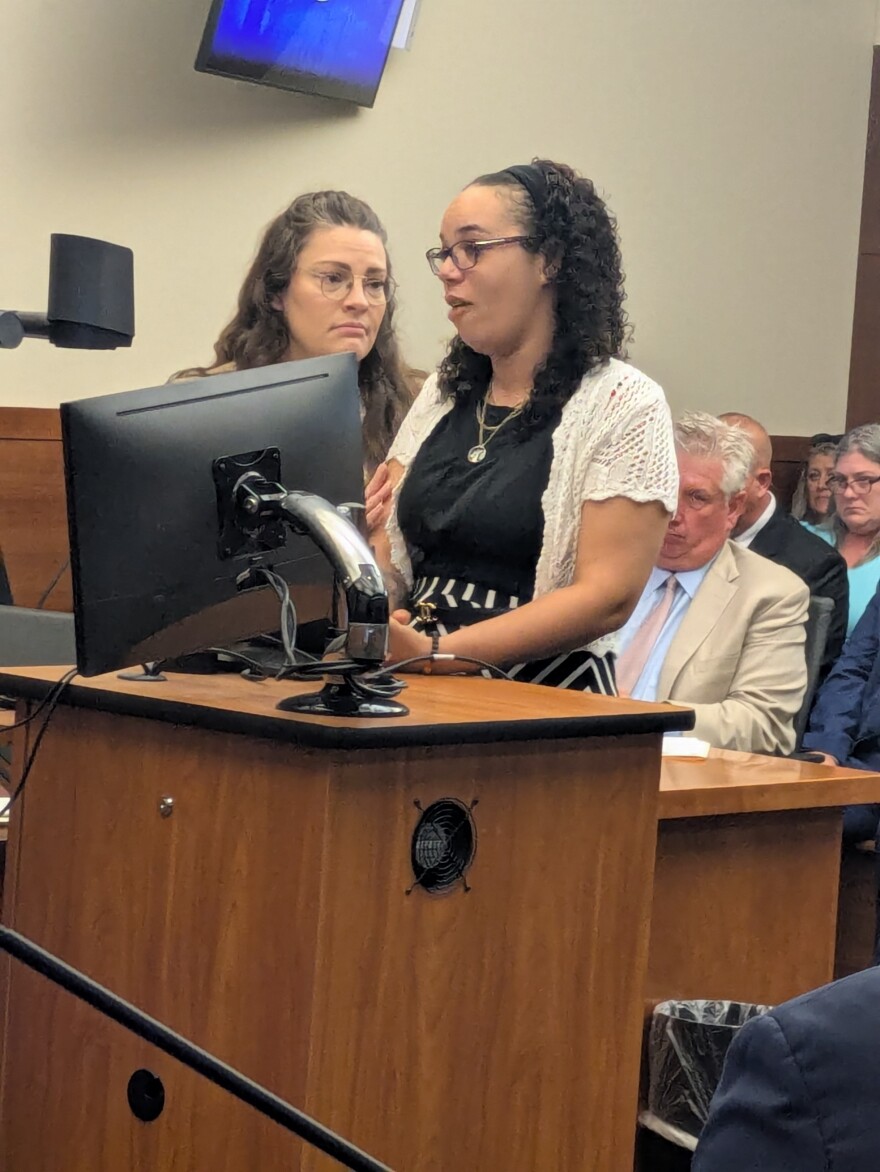A Franklin County judge on Monday sentenced former Columbus police officer Adam Coy to 15 years to life in prison.
Coy shot and killed Andre Hill, an unarmed Black man, at an Oberlin Drive garage on the Northwest Side in December 2020. Hill had been invited to the home.
A jury in November found Coy guilty of murder, reckless homicide and felonious assault.
Coy's defense team argued he never should have faced charges for something he did on duty.
"I will be appealing the ruling, not just for myself, but for everyone in the law enforcement community," Coy said before sentencing.
Coy's attorneys argued Coy mistakenly thought Hill was holding a gun in a hand that he couldn't see well. Hill was actually holding his keys.
Coy said he acted as his training taught him.
"I was taught to respond to a threat without hesitation, because action beats reaction. On the night in question, I did just that," Coy said.
Anthony Hill, Andre Hill's cousin, said that training is a fundamental problem.
"Until we start getting rid of the bad apples in the police department that we do see and have major police reform, especially in training, we will continue to have more Andre Hills being killed by the police," Anthony Hill said.
Coy said he he thinks the jury was confused.
"I disagree with the jury's decision because I believe they did not understand the response a police officer is trained to perform as it relates to the Ohio Revised Code, relative case law, and they were confused by the jury instructions they received and deliberated by," Coy said.
Prosecutors argued during the trial that Coy acted objectively unreasonable when he shot Hill, and therefore outside the scope of his duties as a police officer.
Columbus Police records show Coy had received dozens of complaints about his work over his two decades of employment, accused of mishandling prisoners, using rude language and using inappropriate force.
Coy's defense team asked Franklin County Common Pleas Judge Stephen McIntosh to disregard the jury's verdict or to let Coy go free on bond during the appeals process.
The judge said 'no,' that the verdict reflects the community's expectations that police officers don't shoot people who are following orders.
"Mr. Hill did absolutely everything that you asked him to do. You asked him come out. You asked them to come out with his hands up. And that's exactly what he did," McIntosh said.
"It was not like Mr. Hill was trying to evade. It wasn't like Mr. Hill was running at you. He was doing exactly what you told him to do, which is come out of the garage with your hands up," McIntosh said.
Though the defense claimed that the jury was confused when it found Coy guilty after deliberating for more than two days, McIntosh said at sentencing that the jury was very careful in its decision, and that it sends an important message.
"I can't speak for the community, but that when someone complies with everything that the officer asks them to do and still gets shot, the officer, the individual needs to be held responsible for the actions that they took," McIntosh said.
Karissa Hill, Andre Hill's daughter described her father.
"He's never had bad encounters with the police. He's not a horrible man. Everybody that knows him loves him. He doesn't bring conflict. He was just such a lovely man," Karissa Hill said.
She told the court she hasn't been herself since she woke up to the news her dad was shot by police, and talked about what it's been like to raise her three kids without their grandpa, whom they called Big Daddy.
Karissa Hill said it is even more complex explaining how a police officer killed him.

"It's the hardest thing to do, because those are the people that they tell us to rely on. If something happens, you're supposed to call the police. And that night, someone thought they was doing the right thing, and they called the police, and now my dad's not here anymore," she said.
The sentencing hearing was delayed while Coy's defense team argued Coy should be tried again. Coy's defense argued that prosecutors hid an expert from them and that Coy should receive a new trial.
Prosecutors argued that the expert only gave a surface review, not an in-depth analysis, and so his opinion wasn't evidence.
McIntosh denied that request.
This story has been updated.





